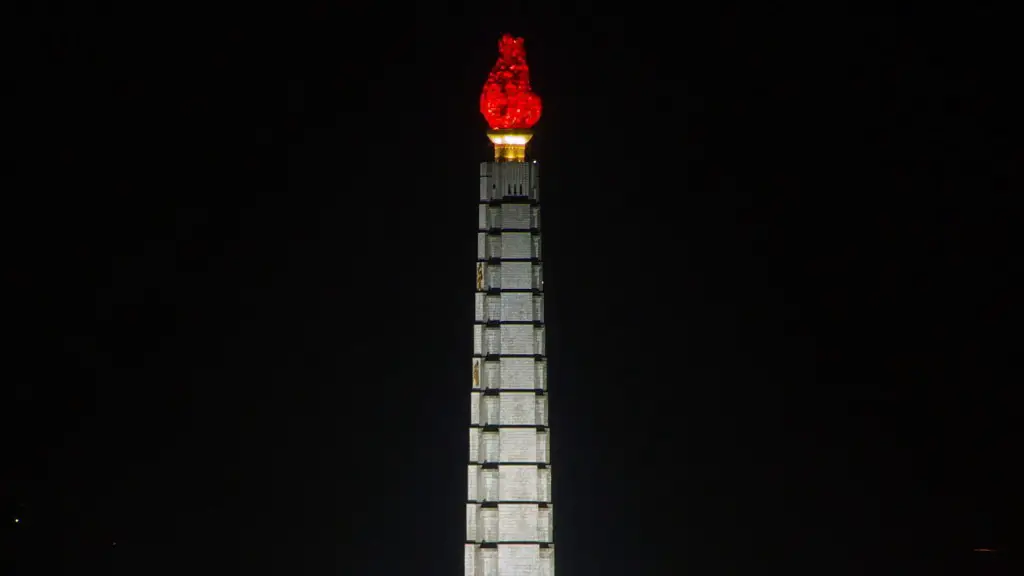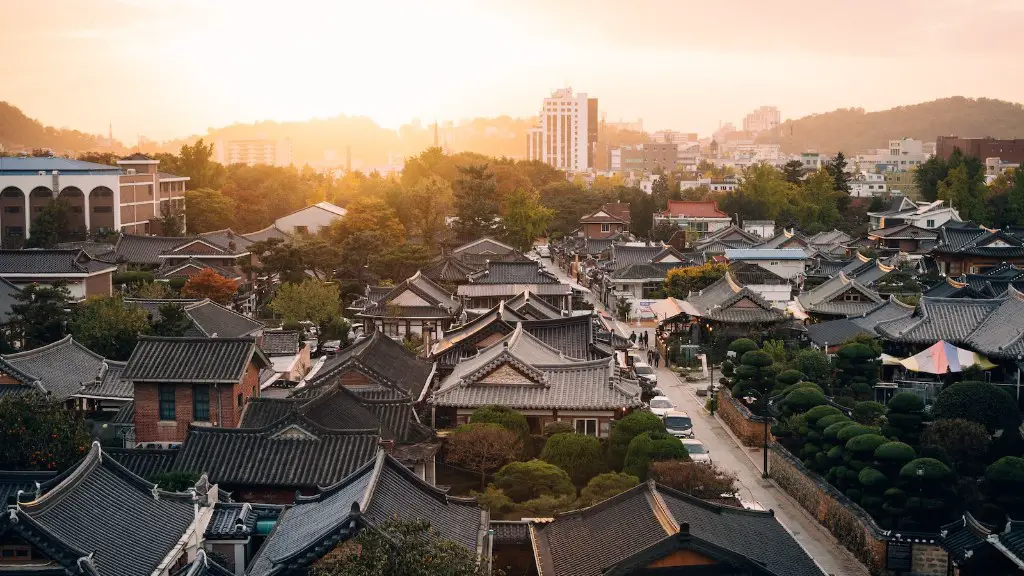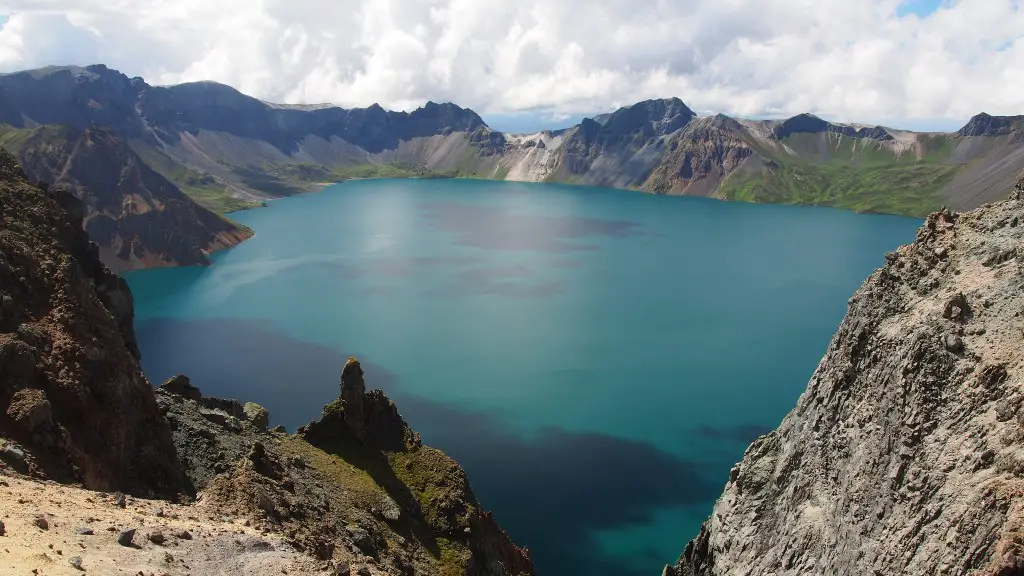Is North Korea A Market Economy?
It is no secret that North Korea sustains an isolated and secretive system with little contact with the outside world. Questions surrounding the status of North Korea’s economy stem from the country’s closed-off nature and the restrictions this generates. North Korea does not have an open trading environment; instead, it primarily adheres to a centrally-planned environment, where the government sets production targets, exerts control over prices, and provides rations of food to the populace. This economic system brings up the question: is North Korea a market economy?
To define the status of North Korea’s economic system, it is helpful to look at the various elements of a market economy. According to the US-based business news outlet Business Insider, a market economy has four major components: private ownership of elements of production, voluntary exchanges, competition, and freedom of pricing. North Korea’s economic system, however, does not fulfill many of the requirements of these components.
Though the North Korean government does not heavily interfere in all facets of the market, it does exert influence on the production side. The government owns and operates the majority of production facilities, meaning most citizens are employed by the state. Furthermore, much of the resources available in North Korea, such as natural gas and agricultural elements, are state-owned. The predominance of government involvement in production is a clear indication that North Korea is not a market economy.
Furthermore, North Korea does not abide by voluntary exchanges in the same way as a market economy does. While there is some room for individuals to engage in small-scale trade, much of the economic decision-making is organized at a higher level by the ruling body. It is unclear how much autonomy citizens have to negotiate the terms of a transaction due to the country’s closed-off nature.
A major indication that North Korea is not a market economy lies in its lack of competition. Private ownership is heavily restricted, and most citizens are employed by the state. This removes the competitive element of a market economy, as citizens cannot go outside of the government monopoly to acquire jobs and resources.
Finally, freedom of pricing is also limited in North Korea. Government-dictated prices are often taken as standard, removing significant autonomy from citizens and traders when exchanging products and resources. Prices have been shown to fluctuate, but North Korea does not have a free and unrestricted environment for pricing in the same manner as a market economy.
International Effects of North Korea’s Economic Status
The lack of an open market environment yields certain implications for North Korea’s international relations, particularly in terms of trade. Most trade transaction in North Korea must be sanctioned by the government, and trade agreements often come with a series of restrictions and requirements. As reported by the international independent think tank Chatham House, the authoritarian nature of North Korea’s economic system has caused the country to fall behind many of its regional counterparts in terms of economic growth and innovation over the past two decades.
International sanctions have also impeded North Korea’s ability to engage in trade. According to the international group, Transparency International, North Korea has been subject to numerous UN Security Council sanctions since 2011. Despite limits on exports and imports, sanctions have not been shown to significantly weaken the North Korean government’s power.
North Korean citizens, however, have been subject to trade restrictions. Though citizens are largely able to obtain necessary resources, such as food and energy, the prices vary significantly, and numerous elements of the market remain off-limits due to sanctions.
Interacting with North Korea’s Economy
Despite the lack of an open market environment in North Korea, a few international companies, such as Microsoft and ORAMS, have formed partnerships with the government to expand their operations in the country. Microsoft and ORAMS are both tech companies and have launched initiatives to increase engagement with North Korea and establish operations within the country. These ventures have proven successful so far, though the companies must adhere to North Korea’s restrictive guidelines, including tight control on the technology used and limitations on the size of operations and personnel.
Private investors have also sought to capitalize on North Korea’s potential in the consumer market. According to CNBC, markets such as hotels and food vendors have grown over the past decade, and North Korea’s technology sector has seen considerable growth. However, most of these developments have been small-scale, implying that North Korea is still far away from transitioning to an open market economy.
The Impact of North Korea’s Economic System on Its People
The effects of North Korea’s economic system are clearly evident in the lives of its people. Food shortages, high inflation rates, and a decrease in individual autonomy due to government control are all products of the country’s centrally-planned economy. Though citizens are largely able to obtain resources, the prices are often out of reach for most, leaving many struggling to meet their essential needs.
Furthermore, the lack of an open market environment has resulted in a decrease in innovation over the past decade. In 2020, for example, North Korea ranked last in SE Asia’s Innovation Index due to the government’s tight control of the economy. By controlling the market, North Korea has been successful in sustaining its current economic system for the time being, but this has come at the cost of great suffering for its citizens.
Evaluation of North Korea’s Economy
A comprehensive evaluation of North Korea’s economic system reveals that the country is far away from transitioning to a market economy. Due to government control, citizens are restricted in terms of private ownership, voluntary exchanges, competition, and freedom of pricing. These conditions deprive citizens of essential economic freedoms and have resulted in economic stagnation and poverty in the country.
Though international sanctions, economic partnerships, and private investments have played a role in North Korea’s economic growth and development, their effects have been limited due to the country’s restrictive plan. To move in the direction of a market economy, North Korea must first make the dramatic shift towards a more open behavior and approach to economic activities.
The Reasons Behind North Korea’s Economic System
Despite being detrimental to North Korea’s citizens, the country’s current economic system is in place for a few reasons. At the core of this system lies North Korea’s authoritarian government, which seeks to maintain its power by controlling the resource distribution and limiting citizens’ contact with the outside world.
It is also notable that North Korea’s current economic system is linked to the country’s sense of identity. North Korea’s self-sustaining and independent stance contributes to the validity of its economic system. To maintain this independent streak, North Korea has chosen to adopt a centrally-planned economy.
The government also seeks to control consumer behavior by regulating the production and distribution of resources. By controlling prices and wages, the government is able to maintain a certain level of economic stability and prevent the discontents that could arise from a market economy.
Conclusion
From its centrally-planned qualities to its lack of an open market environment, North Korea is far away from achieving a market economy. Without a shift towards greater openness and exchange, North Korea’s economic system will remain static, impacting the country’s citizens with every passing day. In order to make significant changes in North Korea’s economy, international interventions are needed to assist the country in transitioning away from its current system of stagnation.




